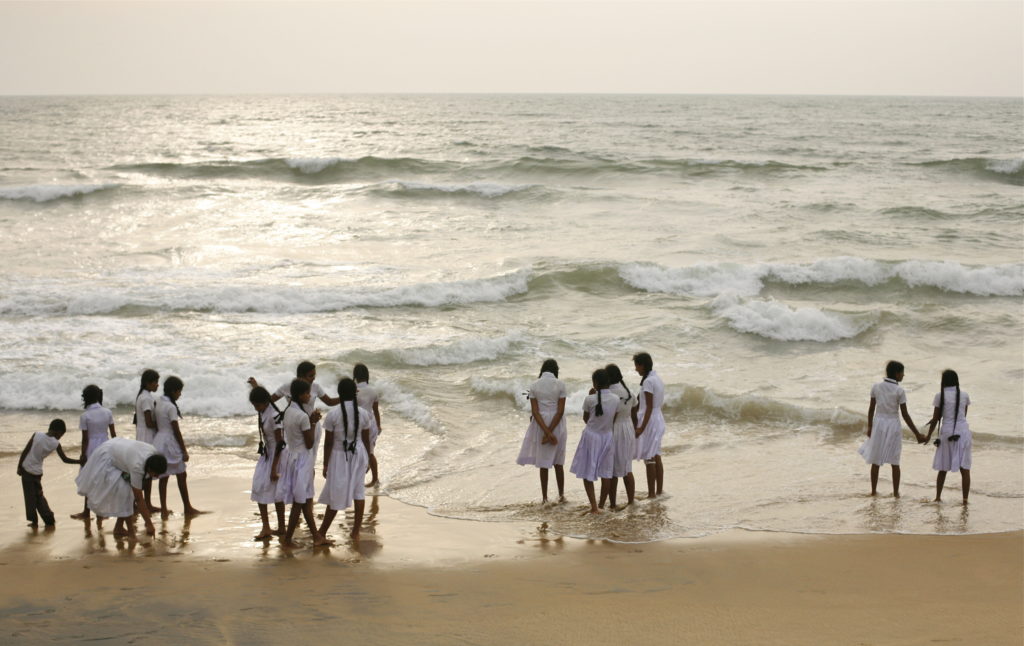Editor’s note: Vanessa Deering is a Red Cross worker who works on the Tsunami Recovery Program, which covered more than 85 relief and recovery projects in 10 countries affected by the devastating 2004 Indian Ocean Tsunami. She wrote this blog post to commemorate the seven year anniversary of the tsunami.
It is dusk in Colombo. A profusion of auto-rickshaws populate the streets, racing to transport weary people from work to home. The rains have come, some days fierce and relentless, other days playful and teasing. En-route from the Red Cross office, I spot two elephants lounging in front of a buddhist temple, lazily snapping bamboo stalks with their trunks, oblivious to the curious onlookers. This is my favorite time of day. This is when I head to the liveliest place in the city.
As an International Services Program Officer at the American Red Cross, I spend the majority of my time in Washington, D.C. liaising with field staff, but also undertake periodic trips to our field offices for project monitoring and support. For the past two and a half years I have worked on the Tsunami Recovery Program, which covered more than 85 relief and recovery projects in 10 countries affected by the devastating 2004 Indian Ocean Tsunami. Life has returned to some semblance of normalcy. For me, nothing illustrates this better than Galle Face Green.
Galle Face Green, a promenade that stretches across the financial and business district of Colombo and runs parallel to the Indian Ocean, is a robust affair. It is a cheerful amalgamation of picnicking families, shrieking school children playing chase with the high tide, foodstall vendors selling fried fish and popcorn, kite enthusiasts, and laughter. It is my happy place where I go to reflect upon the day. And it is a happy place for countless families and friends who have reemerged in this wide open space after years of conflict and natural disaster.
This evening, as I stroll beside the sea, a green-eyed Sri Lankan man approaches me, and asks where I am from.
“USA,” I say.
His eyes smile first, crinkling around the corners. A wide grin spreads across his face. “USA,” he says slowly. “Yes, yes, I like USA very much!”
“Why’s that?” I ask, surprised by his unabashed enthusiasm.
He pauses as a serious look of consternation darkens his brow. “I am from a small village on the coast, he says.. My village was very badly affected by the tsunami. It was very difficult. But the American Red Cross had a project in my village and helped us a lot.”
Now I smile, ever-so-slightly. “Did it make a difference?” I ask.
“Yes,” he says thoughtfully, “it did.” A wide grin once again breaks across his face.
We chat a bit more before parting ways. I never tell him that I work for the American Red Cross. It didn’t seem necessary. Instead, I wander over to a bench to watch the sunset. What I think to myself, as the sky erupts in brilliant, firey tones is that years later our work still matters. People rebuild their lives and move on and new disasters occupy the media, but the impact of our work and the lives it touched remains. It also reminds me that as valuable as the tools are that we use to measure impact, certainly the most rewarding (while perhaps not the most technical indicator of success) is an honest, unsolicited response from a stranger… and a smile.

